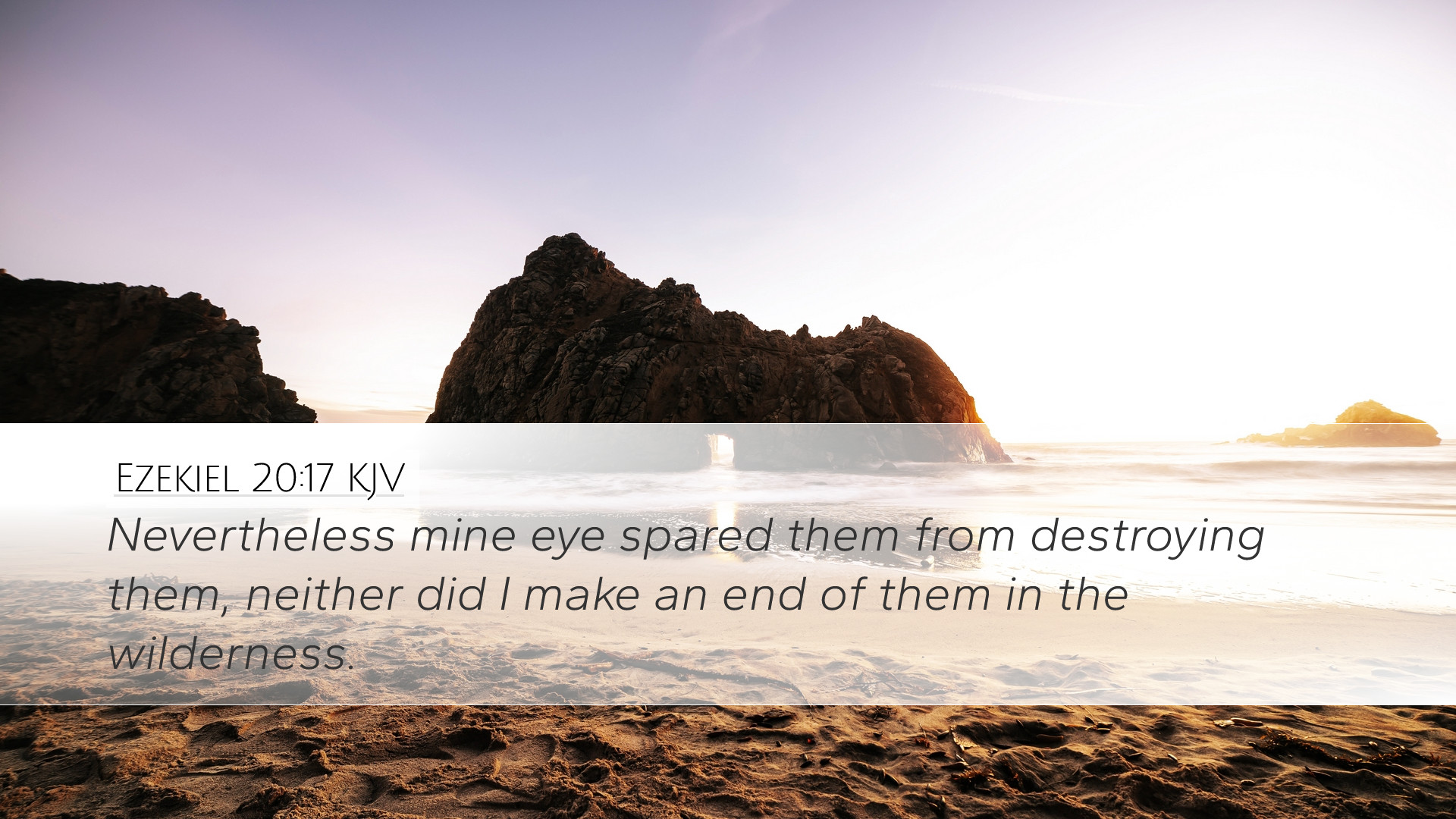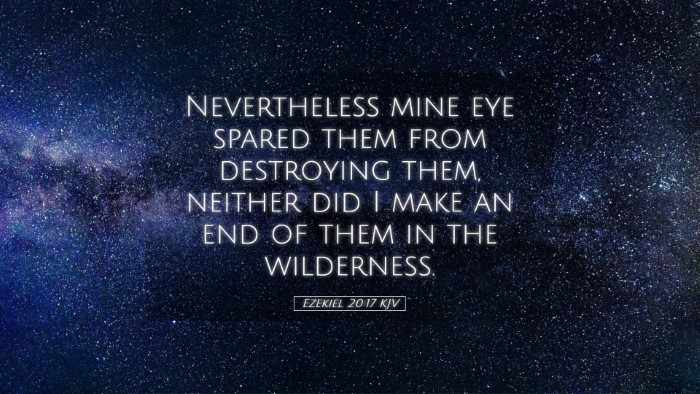Ezekiel 20:17 - Biblical Commentary
Ezekiel 20:17 states: "Nevertheless, my eye spared them from destroying them, neither did I make an end of them in the wilderness." This verse encapsulates the themes of divine mercy, judgment, and the enduring covenant of God with His people. Various public domain commentaries shed light on this passage, offering insights that resonate with pastors, students, theologians, and biblical scholars.
Contextual Background
The book of Ezekiel is set during the Babylonian exile, where the prophet encounters a people grappling with disillusionment and questions about God's relationship with them. Throughout the book, Ezekiel communicates God’s judgments while also revealing His profound mercy.
Analysis of the Verse
This verse occurs within a section where Ezekiel recalls Israel's history and the numerous instances of rebellion against God. He emphasizes that, despite their transgressions, God chose not to destroy them completely, expressing a pattern of divine mercy.
Divine Mercy and Preservation
The phrase "my eye spared them" illustrates God's compassion. Matthew Henry’s commentary highlights that God's mercy is greater than human rebellion. God’s act of sparing Israel demonstrates His commitment to His covenant despite their failures.
Albert Barnes further notes that God's decision to withhold complete destruction underscores His desire for restoration. The use of "neither did I make an end of them" conveys an assurance that God has a plan for Israel's future, regardless of their current state.
Historical Reflection
Adam Clarke elaborates on the historical context, examining how Israel repeatedly turned away from God during their wilderness journey. He reflects on the broader implications of divine patience. God’s engagement with His people underscores a fundamental aspect of the divine nature—long-suffering and readiness to forgive.
Theological Implications
Theological reflections on this verse lead to essential discussions surrounding God’s character:
- God's Sovereignty: The verse affirms that even in judgment, God maintains control over the outcome, choosing mercy over destruction.
- Covenant Faithfulness: God's actions reflect His faithfulness to the covenant He made with Israel, emphasizing that His promises endure regardless of human unfaithfulness.
- Hope Amidst Judgment: There is a critical theme of hope here. Even when faced with God’s judgment, there lies an opportunity for repentance and restoration.
Lessons for Today
This verse offers profound lessons for contemporary believers:
- Encouragement in Struggles: Like Israel, believers may experience seasons of discipline yet find assurance in God’s underlying mercy.
- Call to Repentance: The history of Israel serves as a reminder that repentance is always an option, and God eagerly awaits a return to Him.
- Understanding of Divine Patience: This passage invites an understanding of God's long-suffering nature, encouraging believers to extend the same mercy to others.
Conclusion
In summary, Ezekiel 20:17 reveals a critical aspect of God's character: His desire for mercy amidst judgment. Through the insights of Matthew Henry, Albert Barnes, and Adam Clarke, it becomes evident that God’s relationship with His people is marked by patience, fidelity, and hope for restoration. This passage serves not only as a historical account but also as a timeless reminder of God's enduring mercy toward humanity, encouraging all believers to embrace His grace and extend it to others.


